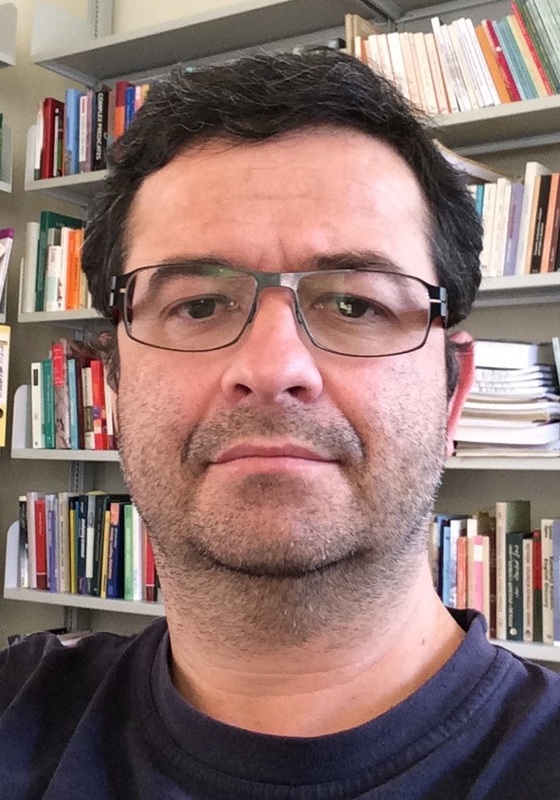ASILE CONFERENCE 2016
Presenter
Anthony Jukes
|
ASILE conference presentation:
Colloquium 1 The changing value of the local in everyday public contexts in Indonesia Abstract "In many parts of the world local languages have gained increasing social value vis-à-vis their national language counterparts (Heller, Bell, Daveluy, McLaughlin, & Noel, 2015; Heller & Duchêne, 2012; Kelly-Holmes & Mautner, 2010; Pietikäinen & Kelly-Holmes, 2013; Pietikäinen, Kelly-Holmes, Jaffe, & Coupland, 2016). A similar situation can be found in Indonesia, although the reasons are sometimes quite different (Goebel, 2015; Goebel, Cole, & Manns, 2016; Goebel, Jukes, & Morin, 2016). This colloquium examines this revaluation process by focusing on specific cases in Indonesia. In the first paper, Goebel looks at the marketization of local languages on television, especially Javanese, Sundanese and Betawi. He starts with the beginnings of this process in the early 1990s when fragments of these local languages were included in some select soap operas (sinetron). He then moves to the late 2000s when local languages had become part of most television genres. Drawing on a linguistic landscapes perspective (Blommaert, 2013; Goebel, Jukes, et al., 2016; Scollon & Scollon, 2003; Stroud & Mpendukana, 2009), Jukes focuses on the case of local endangered languages in Sulawesi, showing how Manado Malay and Tombulu had found their way into official political campaign signage in 2015. Using a similar framework, Morin focuses on signage in West Papua showing how Papuan Malay has become increasingly common in public spaces, including signage, the mass media and the internet. In line with contemporary thinking about mixed language practices (Arnaut, Blommaert, Rampton, & Spotti, 2015; Blackledge & Creese, 2014; Pennycook & Otsuji, 2015), the overall point of these three descriptions of local language practices is that the use of regional languages (bahasa daerah or BD) and Indonesian in everyday contexts is not a binary choice (i.e. bahasa daerah vs bahasa Indonesia). Rather, BD feeds into local varieties of Indonesian/Malay and these fill the space in-between in various ways. We end by asking the question about whether our work has pedagogical implications. For example, our students get taught Indonesian, and sometimes they get some introduction to ‘Colloquial Indonesian’ or ‘Non-Formal Indonesian’ and even some local languages (as found in the work of Ellen Rafferty and colleagues at the University of Wisconsin), but in general we wonder whether it is feasible or desirable to incorporate the insights we offer about mixed language practices into language curriculum. References - click to access |
Biodata
Dr Anthony Jukes began his career conducting linguistic research on languages of Sulawesi, Indonesia. His PhD thesis (University of Melbourne, 2006) is a reference grammar of Makassarese (South Sulawesi), with special attention to the literary genre contained in manuscripts written in an obsolete local script. Between 2005 and 2007 Anthony was a post-doctoral research fellow at the School of Oriental and African Studies, UK, supported by the Endangered Languages Documentation Programme. His research project was to document and describe Toratán (Ratahan), a highly endangered language spoken by about 150 people in a handful of villages located in North Sulawesi. Anthony has been involved in training for language documentation in the UK, Indonesia, and Japan. Anthony is currently an Australian Postdoctoral Fellow and Chief Investigator of an Australian Research Council funded Discovery Project 'The languages of Minahasa: documentation, description, and support'. This project, running 2011-2015, aims to document and describe several of the endangered languages of North Sulawesi, Indonesia. Most of the languages of this area (one of the few majority-Christian areas of Indonesia), as well as their distinctive ethnic cultures, are under pressure from Manado Malay as well as mainstream Indonesian language and culture. Contact Details Dr. Anthony Jukes Visiting Professor, Research Institute for Languages and Cultures of Asia and Africa, Tokyo University of Foreign Studies E: [email protected] |

